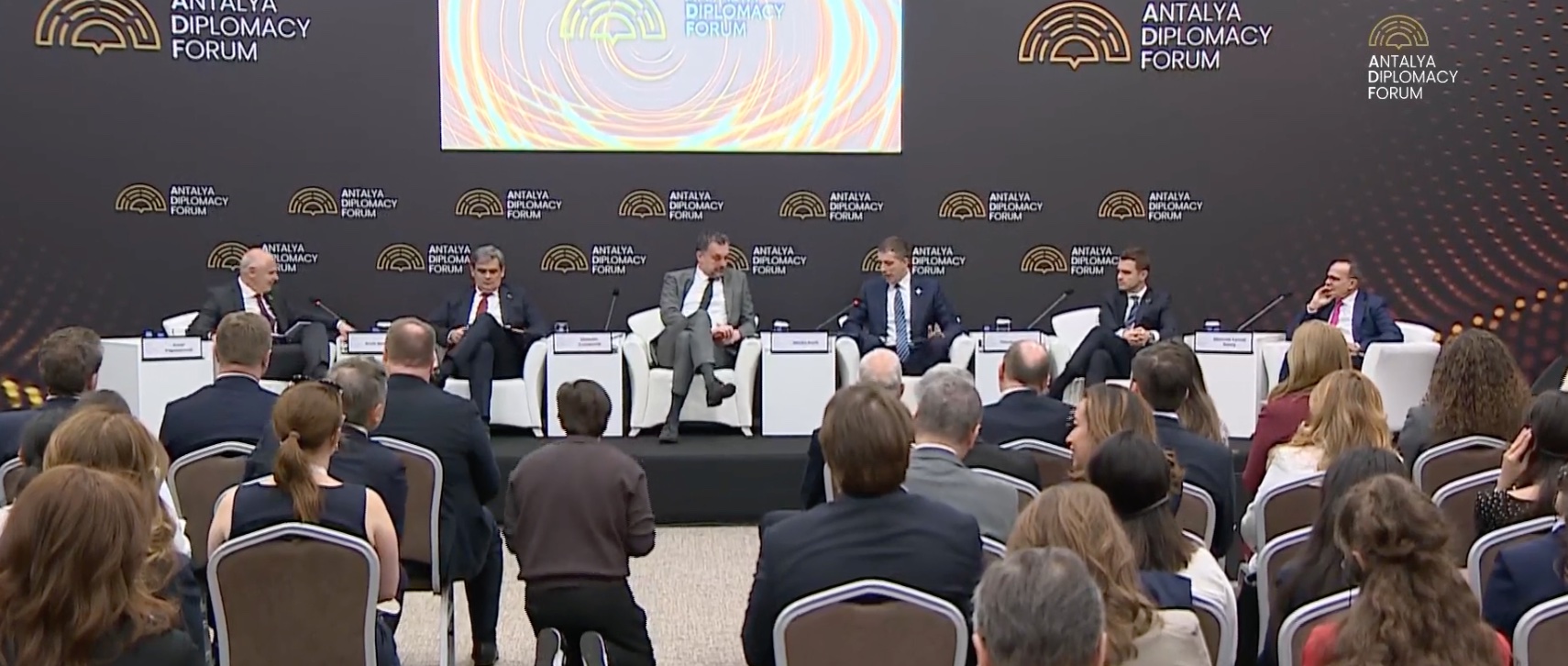ANTALYA, Türkiye, April 12. At the 4th Antalya Diplomacy Forum, Montenegro’s Deputy Prime Minister for International Relations and Minister of Foreign Affairs, Ervin Ibrahimović, highlighted the central role of regional cooperation in fostering stability, economic growth, and European integration in the Western Balkans, Trend reports.
Speaking on the panel “Regional Ownership for a Prosperous Future in the Balkans,” Ibrahimović said that “building good relationships with our neighbors is a key priority for our foreign policy,” underscoring that regional cooperation remains vital to Montenegro’s strategic goals.
“As a small and diverse country, Montenegro uses regional cooperation to support our national interests,” he noted. “Since gaining independence, we have made significant efforts to use regional initiatives to benefit our people.”
Ibrahimović reiterated that Montenegro’s primary foreign policy objective is to join the European Union, and regional platforms such as the Southeast European Cooperation Process, the Regional Cooperation Council, and the Berlin Process serve as key tools to meet European standards. “The EU promotes peace and prosperity, and we focus on these values to build trust,” he said.
He acknowledged, however, that unresolved bilateral issues and a lack of political will remain obstacles to faster EU integration. “Regional organizations can help improve this situation in many aspects, but only if we use them in the proper manner,” he stressed.
Infrastructure was also cited as a key enabler of cooperation. “Good infrastructure is essential for better regional connection and cooperation. It can attract investment and strengthen our economy, but it's conditioned by values such as peace, trust, confidence, and resilience,” he added.
Reflecting on challenges rooted in the past, Ibrahimović pointed to the need for greater reconciliation. “Our recent past and lack of sustainable reconciliation and trust-building measures continue to burden our progress in many areas,” he said. “This issue especially affects economic cooperation and better people-to-people exchange or understanding, ultimately slowing our collective efforts to build a more integrated and resilient future.”
Concluding his remarks, Ibrahimović called for continued commitment to EU integration and stronger regional ties. “We must keep working toward EU integration and use our partnership to create a more connected and prosperous Southeast Europe,” he said.







